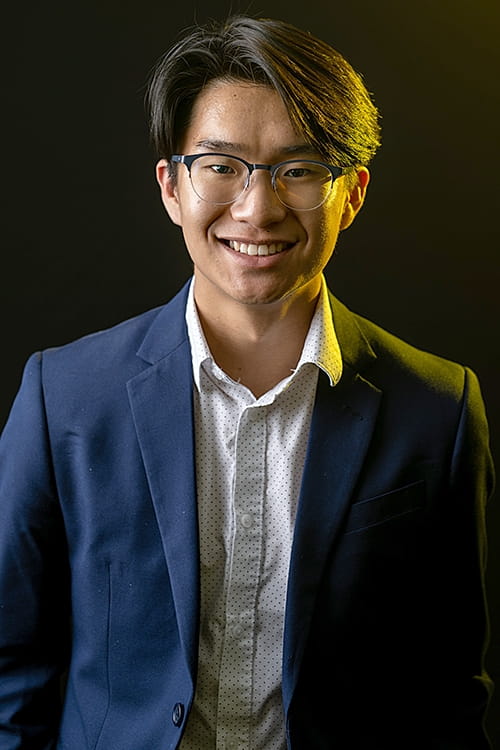
Daniel Fu, Undergraduate student, biomedical sciences
Regulates cell signals to improve memory
“Daniel is an exceptional young man who clearly stands out as among the most talented and accomplished undergraduate students I have encountered. Daniel is productive and the quality of his work is outstanding.” -Rory Fisher, professor, neuroscience and pharmacology
Hometown: Johnston, Iowa
Faculty mentor/advisor: Rory Fisher, PhD, professor, neuroscience and pharmacology, Carver College of Medicine
What is your degree program and expected graduate date? BS in biomedical sciences, minor in philosophy, certificate in clinical and translational sciences. Expected graduation in spring 2023.
Please describe your research: The Fisher lab studies proteins involved in signaling within cells in humans, particularly in the brain. My project is to provide better understanding of how this signaling mediates exercise-induced adult neurogenesis (new neuron growth) in Alzheimer’s disease. By manipulating this cellular signaling and examining its impact on learning, memory, and pathological proteins, we hope to understand how neurogenesis impairment contributes to Alzheimer’s and help identify new therapeutic targets in this process and disease.
In simple terms, why does this research matter? Alzheimer’s disease impacts around six million people and has an economic burden of over three hundred billion dollars in the U.S. These numbers are expected to increase as the population ages and currently, there are no approved treatments effective in treating cognitive decline in Alzheimer’s patients. This research is important to help us understand how we can alter our lifestyles to improve our cognitive health and provide a potential novel drug target to guide future research.
How soon after starting at the University of Iowa were you able to participate in research? I began working in the Fisher lab the second semester of my first year.
How has being involved in research made you more successful at the University of Iowa?
Participating in research has broadened my understanding of the basic sciences and the way research is developed to impact lives in the clinical setting. By taking the knowledge learned in the classroom and applying it to practice, I have been able to understand the scientific process in research across a variety of disciplines in biomedicine. This has all been possible due to the substantial resources at the University that help undergraduates prepare for their future careers. Special thanks to Dr. Fisher and Dr. Yang for their guidance and mentorship in my research journey!
What are your career goals and/or plans after graduation? Following graduation, I would like to get a Master of Science in Bioethics and then attend medical school!
Banner location: not on display—
